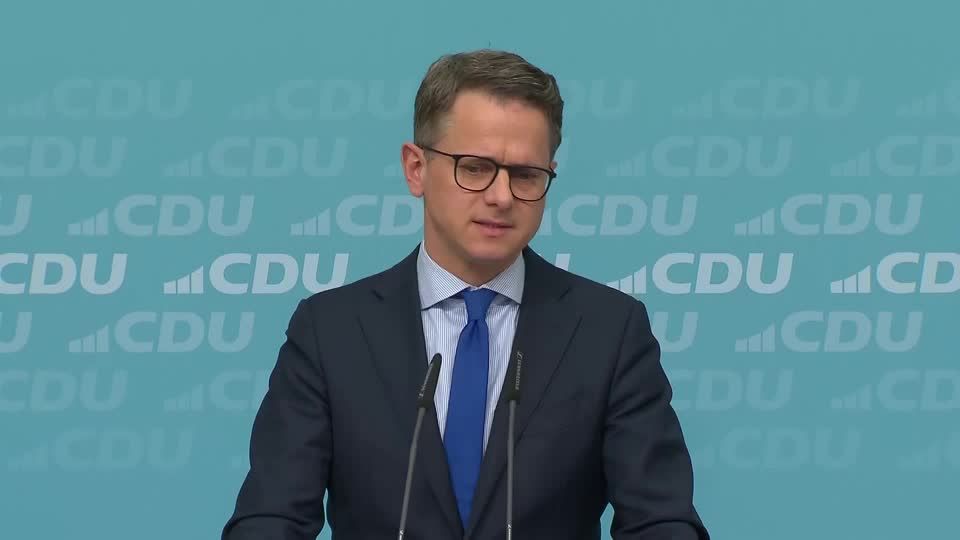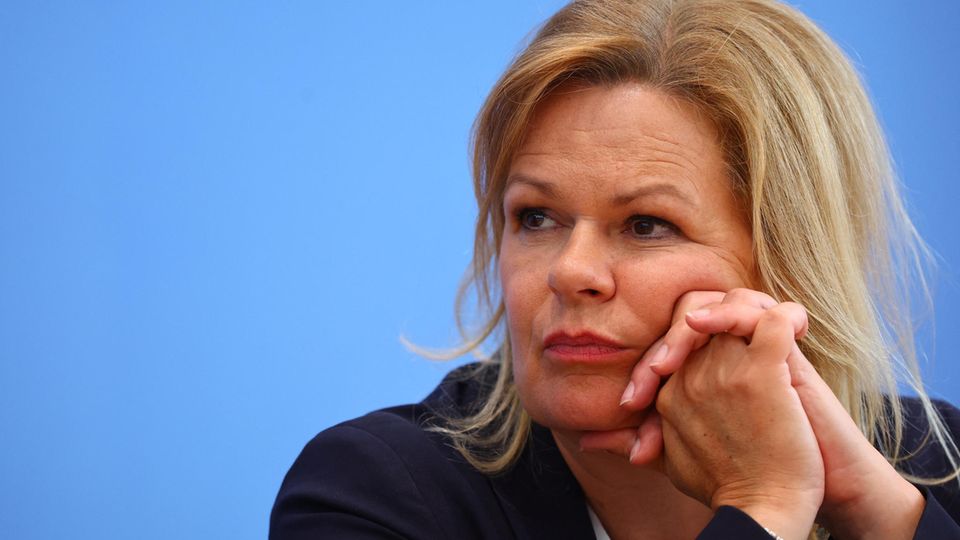Benefit for asylum seekers
Not nationwide: Is every district now introducing its own payment card?
The model of a payment card being presented at a press conference
© Bodo Schackow / DPA
A uniform payment card is intended to prevent asylum seekers from transferring money to smugglers, their family or friends abroad. However, in many places it has not yet been decided how exactly this should be done.
It’s about a federal regulation for payment cards that the states are introducing for asylum seekers. Part of the state benefits for asylum seekers will in future be provided as credit on this payment card. The specific design is still unclear in many places – the tender process for the card is still ongoing.
The Greens in particular have concerns
Green politicians had previously stated that no change was needed at the federal level to introduce the card – and there were also fears that such cards could hinder integration. The states insisted on a nationwide regulation in order to create legal certainty in the event of lawsuits. The Federal Ministry of Economics, led by the Greens, said on Thursday evening that the payment card made sense. The formulation aid for a nationwide uniform legal basis was approved.
At the end of January, 14 of 16 federal states agreed on a joint procurement process to introduce a payment card for asylum seekers, which should be completed by the summer. Bavaria and Mecklenburg-Western Pomerania are going their own way, but also want to introduce a payment card. The card is intended to prevent asylum seekers from transferring money to smugglers or to their family or friends abroad.
The specific design of the payment card is unclear in many places
The award process involves, for example, which service provider applies and how the card is technically implemented. The German head of the financial service provider Mastercard, Peter Robejsek, told the “Augsburger Allgemeine” about two weeks ago: “The specific design a card should have can theoretically differ from federal state to federal state and also from district to district.”
The payment card should now be expressly included as an option in the Asylum Seekers Benefits Act – its possible uses will also be expanded. This is intended to give states and municipalities more options in how they provide services to asylum seekers. The plan is for every adult member of a household entitled to benefits to receive their own payment card. The specific design of the map should be the responsibility of the countries that have agreed on minimum standards in a working group.

Such a card is already used in some places. In Thuringia, several other districts started this on Friday. However, the details are different in the Thuringian municipalities – for example when it comes to cash withdrawals. According to the State Ministry of the Interior, a pilot test will start in Bavaria in March, initially in the three districts of Fürstenfeldbruck, Günzburg and Traunstein as well as in the independent city of Straubing. Magdeburg wants to do a test run with 1,000 payment cards. The cash function of the card is limited to 50 euros.
Exclude the use of cards for individual areas?
In addition to the amount of cash, one question when introducing the card in the future will also be the question of whether the card cannot be used for individual areas – Hesse’s Prime Minister Boris Rhein (CDU) mentioned the gambling industry at the end of January.
Migration 2023
Most people from these countries apply for asylum in Germany
In the city state of Hamburg, the payment card has been issued to asylum seekers for around two weeks. According to the social authorities, every adult receives a monthly credit of 185 euros, which could be used to buy and pay for everyday items. Child benefits would also be credited to a parent’s card.
Diakonie takes a critical view of payment cards
Diakonie Deutschland called for the payment card to be designed in such a way that it can be used sensibly and without discrimination. Social Affairs Director Maria Loheide criticized that the currently planned card drastically restricts cash for asylum seekers and excludes account functions such as transfers and direct debits. “In our view, such a card should – if at all – only be used in the initial reception phase of refugees, as long as an account cannot yet be opened. For us it is very clear: account before payment card, at the latest when people arrive in the municipalities .”
Hesse’s Prime Minister Rhein (CDU) assesses the end of the traffic light dispute over the payment card as positive. “I welcome the fact that the Chancellor (Olaf Scholz/SPD) has spoken out and broken the Greens’ blockade on payment cards,” Rhein told the DPA news agency. “A nationwide uniform and legally secure payment card is an important instrument in migration policy. It reduces incentives, prevents misuse and helps stop smugglers.” Rhein is chairman of the Prime Minister’s Conference, which will negotiate again with Chancellor Scholz about asylum policy in Berlin next Wednesday.


